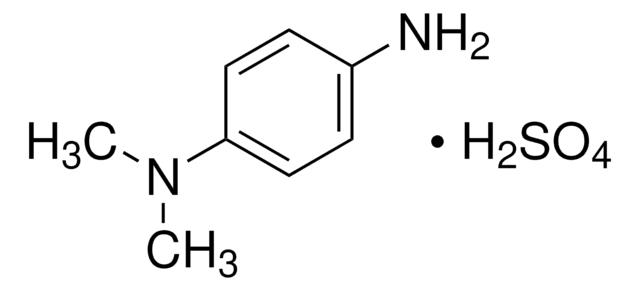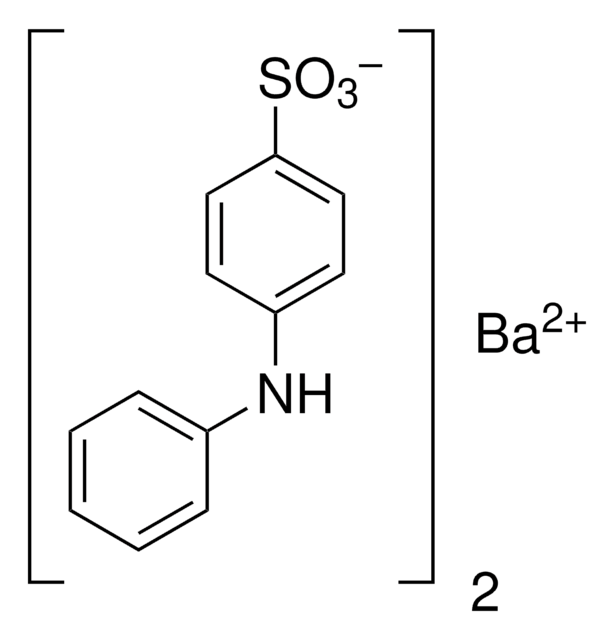07672
N,N-Diethyl-p-phenylenediamine sulfate salt
≥98.0% (T)
Synonym(s):
4-Amino-N,N-diethylaniline sulfate salt
About This Item
Recommended Products
Quality Level
assay
≥98.0% (T)
form
solid
mp
184-186 °C (lit.)
184-187 °C
functional group
amine
SMILES string
OS(O)(=O)=O.CCN(CC)c1ccc(N)cc1
InChI
1S/C10H16N2.H2O4S/c1-3-12(4-2)10-7-5-9(11)6-8-10;1-5(2,3)4/h5-8H,3-4,11H2,1-2H3;(H2,1,2,3,4)
InChI key
AYLDJQABCMPYEN-UHFFFAOYSA-N
Looking for similar products? Visit Product Comparison Guide
Related Categories
Application
signalword
Warning
hcodes
Hazard Classifications
Acute Tox. 4 Oral
Storage Class
11 - Combustible Solids
wgk_germany
WGK 3
flash_point_f
Not applicable
flash_point_c
Not applicable
ppe
dust mask type N95 (US), Eyeshields, Faceshields, Gloves
Choose from one of the most recent versions:
Already Own This Product?
Find documentation for the products that you have recently purchased in the Document Library.
Our team of scientists has experience in all areas of research including Life Science, Material Science, Chemical Synthesis, Chromatography, Analytical and many others.
Contact Technical Service









